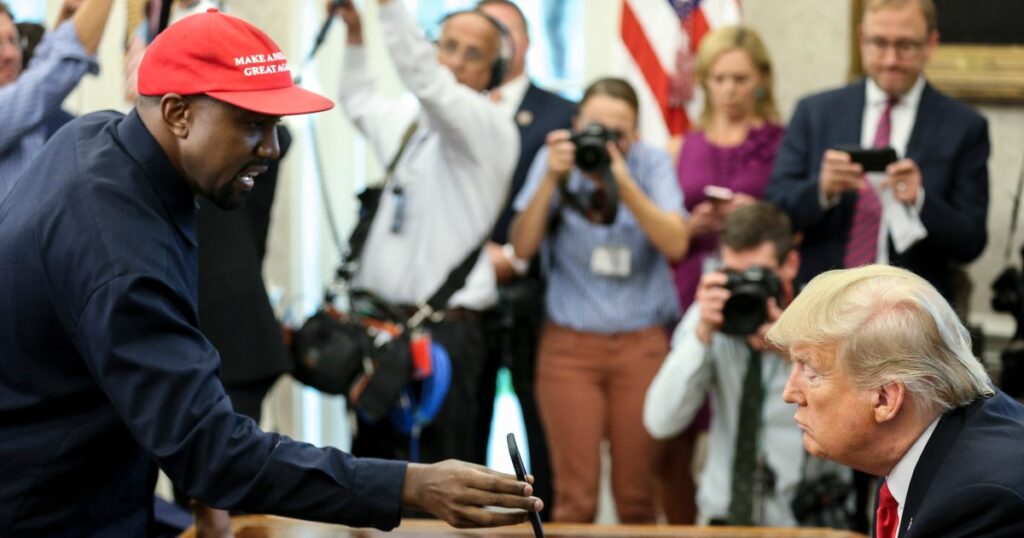Historic Shift in Justice: President Trump Grants Clemency to Gang Leader Larry Hoover
While many may only recognize Larry Hoover Sr. from a fleeting mention in Rick Ross’ 2010 chart-topping track “B.M.F (Blowin’ Money Rapidly),” where Ross references him with the lyrics, “I meditate I’m Immense Meech, Larry Hoover,” his story extends far beyond pop culture snippets. Recently, Hoover’s life took a dramatic turn when President Donald Trump officially commuted his lengthy federal sentences, marking a significant development in criminal justice and political discourse.
The Background of Larry Hoover’s Legal Journey
Larry Hoover, a notorious figure in Chicago’s criminal landscape, was the founder of the Gangster Disciples, a group that emerged in the early 1970s. Originally established as a street organization, it evolved into a powerful entity involved in drug trafficking, extortion, and violence. Hoover, often dubbed the “chairman of the board” and “the king” of the gang, was also labeled as one of Illinois’ most infamous criminals. Court records and prosecutors’ testimonies allege that Hoover directed violent activities and drug operations in Chicago from at least 1970 through 1995.
The organization he led reportedly generated approximately $109 million annually from narcotics sales, with a significant portion of the profits allegedly funneling directly into Hoover’s family’s pockets. His influence was so extensive that he was considered a central figure in the city’s criminal underworld for decades.
The Controversy Over His Sentencing and Imprisonment
In 1997, Hoover was convicted on federal charges, resulting in a life sentence. Despite his incarceration, Hoover maintained a controversial reputation, with supporters claiming he had undergone personal transformation and advocating for his release. His legal team argued that Hoover had demonstrated significant rehabilitation and that his continued imprisonment was unjust.
However, federal prosecutors contested these claims, asserting that Hoover remained a key figure in ongoing gang activities. They pointed to intelligence data indicating Hoover’s continued influence over the Gangster Disciples from prison, particularly at the high-security Florence ADX facility, which houses some of the nation’s most dangerous inmates, including terrorists and notorious cartel leaders like Joaquín “El Chapo” Guzmán.
The Push for Clemency and Public Support
The movement to secure Hoover’s release gained momentum thanks to advocacy from high-profile figures, notably rapper Kanye West (now Ye). During a 2018 meeting at the White House, Ye presented President Trump with a photo of an airplane, emphasizing Hoover’s importance and urging clemency. Ye publicly expressed his belief that Hoover deserved a second chance, framing his case as a matter of justice and redemption.
In 2021, Hoover’s son, Larry Hoover Jr., publicly called for his father’s release, emphasizing his efforts to distance himself from gang affiliations. Hoover himself has claimed to have changed, renaming his organization from “Gangster Disciples” to “Support and Growth,” and focusing on education and rehabilitation for his followers. Hoover has consistently maintained that he no longer has any ties to the gang and seeks to lead a lawful life.
The Political and Legal Debate
Despite widespread support from advocates and some legal experts, Hoover’s release was met with resistance from federal prosecutors. They argued that Hoover’s continued influence and the nature of his crimes warranted his remaining in prison. Court filings highlighted that Hoover’s leadership role persisted even behind bars, and they urged the court to deny his early release under the First Step Act, a law aimed at criminal justice reform.
Legal professionals like Joshua Dubin and Justin Extra, who worked on Hoover’s case, emphasized Hoover’s claims of disassociation from gang activities. In a 2022 letter, Hoover explicitly stated he had severed all ties with the Gangster Disciples and was no longer involved in any criminal organization. They argued that his time served was sufficient and that Illinois authorities should consider granting him parole or sentence reduction.
The Significance of the Presidential Clemency
In a historic move, President Trump commuted Hoover’s life sentences, a decision that drew both praise and criticism. Supporters viewed it as a recognition of Hoover’s alleged rehabilitation and a step toward justice, especially given the influence of advocacy campaigns and high-profile endorsements. Critics, however, questioned whether Hoover’s influence had truly diminished and expressed concern over potential implications for public safety.
The decision to commute Hoover’s sentences also sparked broader conversations about criminal justice reform, the role of political influence, and the potential for redemption within the justice system. Hoover’s case exemplifies the complex intersection of law, politics, and social justice, highlighting ongoing debates about fairness and rehabilitation.
The Broader Impact and Future Outlook
Hoover’s release from federal custody is expected to lead to further discussions about his role in Illinois and whether state authorities will follow suit in reducing or overturn his sentence. Advocates argue that after over five decades of incarceration, Hoover has earned a chance at reintegration into society, especially given his efforts to promote education and non-violence.
Meanwhile, the case remains a potent symbol of the evolving landscape of criminal justice, where rehabilitation and second chances are increasingly recognized as vital components of a fair legal system. As Hoover transitions from federal prison to a state facility in Illinois, the nation watches closely, pondering the implications for similar cases and the future of justice reform.
Note: This article aims to provide a comprehensive, restructured, and uniquely paraphrased account of Larry Hoover’s recent legal developments, emphasizing the significance of his commutation and the ongoing debates surrounding criminal justice reform.

